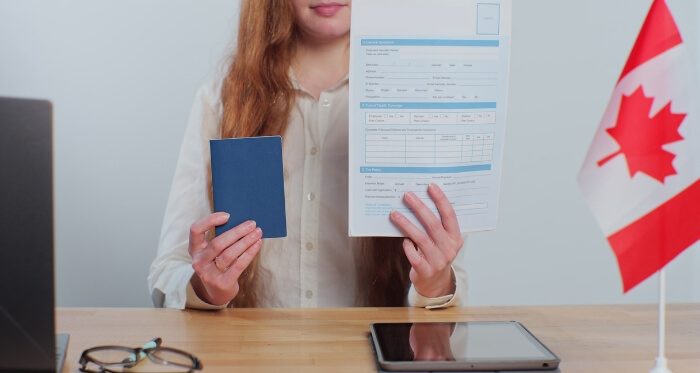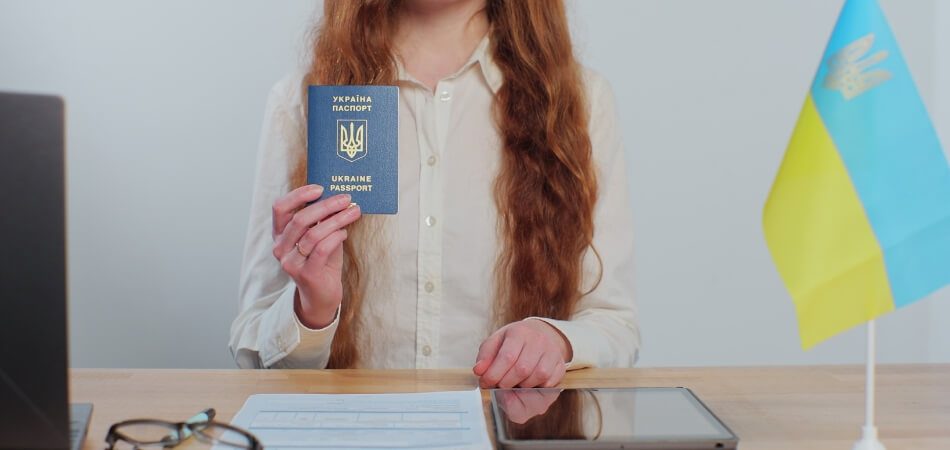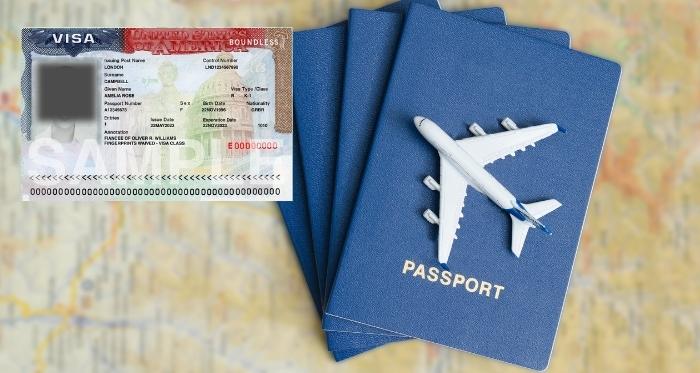An overseas trip is a thrilling concept that holds the promise of fresh encounters and activities. But despite all the excitement, one important query can linger: Can I Apply for a Visa Without a Visa Support Letter? This question frequently comes up when potential tourists look for clarification on the complex topic of visa applications.
The answer is no. Generally, a Visa Support Letter (VSL) is essential for visa applications. It verifies the purpose and duration of your visit. However, visa requirements can vary by country, so always check with the specific embassy or consulate before applying.
In this blog, we’ll explore the world of visa applications. We’ll talk about Visa Support Letters and when you might not need one. Whether you’re planning a vacation, a business trip, or studying abroad, we’ll make visa requirements easy to understand. Join us in demystifying the visa process!
The Purpose of the Visa Support Letter
A Visa Support Letter (VSL) serves as a foundational document in many visa application processes worldwide. At its core, it provides a clear verification of the traveler’s intentions, spanning from the nature of the visit to its duration. By doing so, it offers consular officials a transparent lens through which to gauge the authenticity of an applicant’s claims.
Beyond mere verification, the VSL acts as a safeguard against potential misuse of visa privileges. It minimizes risks associated with overstays, illegal activities, or other discrepancies that might arise during a foreigner’s stay. Through this mechanism, countries can ensure a more controlled and secure immigration process.
However, the VSL isn’t just a tool for authorities; it benefits applicants too. It streamlines the application, offering a more structured path to visa approval. Additionally, a well-drafted VSL can significantly reduce uncertainties and ambiguities that could otherwise delay or hinder the process.
How a Visa Support Letter Affects the Visa Application Process?
When it comes to visa applications, Visa Support Letters (VSLs) are more than just pieces of paper. They can significantly influence the outcome of your application. Let’s dive into the ways in which Visa Support Letters affect the visa application process.
Clarifying Your Intentions With a VSL:
A Visa Support Letter serves as a vital tool for communicating the purpose of your visit to immigration officials. Whether you’re traveling for tourism, business, or education, a well-crafted VSL can provide clarity regarding the nature and intent of your stay.
Demonstrating Financial Capability:
Many countries require proof of sufficient funds to cover your expenses during your stay. A VSL can play a crucial role in demonstrating your financial stability and ability to meet this requirement, enhancing your chances of approval.
Strengthening Ties to Your Home Country:
Immigration authorities often seek assurance that you will return to your home country after your visit. A VSL can assist in this regard by showcasing strong ties, such as employment, property ownership, or family connections, instilling confidence in your intentions to return.
Invitation from a Host:
If your travel plans involve visiting friends and family, or attending an event, obtaining a VSL from your host can be invaluable. Such a letter validates your connection to the host country and substantiates the purpose of your visit.
Streamlining Visa Approval with a VSL:
A well-prepared Visa Support Letter can serve as a powerful tool for expediting the visa approval process. It reduces ambiguity, provides clarity to the authorities reviewing your application, and increases the efficiency of the overall process.
Visa Support Letters are vital for visa applications. They clarify your plans, show you can cover expenses, tie you to your home country, validate host invitations, and make getting a visa easier. Knowing their importance and having a strong VSL boosts your chances of securing your dream destination’s visa.
Can I Apply for a Visa Without a Visa Support Letter?
Traveling quickly across borders often involves a mountain of paperwork. Among the countless inquiries, one recurs often: Can I apply for a visa without a Visa Support Letter? The answer to this question is not fully clear-cut because every nation has distinctive visa procedures.
In most visa application processes, a Visa Support Letter (VSL) holds paramount importance. This document explicitly outlines the purpose and duration of your intended stay. By offering a clear narrative, it aids consular officers in assessing the authenticity and intent of your visit.
However, not all countries or visa categories mandate a VSL. Some nations might accept alternative proofs, like hotel bookings, invitations, or professional engagements. While this flexibility exists, travelers should always ensure they’re well-informed and updated about the specific requirements of their destination country.
Erring on the side of caution often proves prudent in visa applications. Even if a VSL isn’t strictly mandatory, presenting one can bolster your case. It can act as a compelling tool, preempting doubts and amplifying the chances of visa approval.
Types of Visa that are not Required Visa Support Letter
Visa applications can often feel like navigating a complex maze, but there are certain visa categories that offer a simpler path. In this guide, we will delve into these visa types that typically do not require a Visa Support Letter (VSL), making your travel plans less complicated.
Tourist Visas
Tourist visas, designed for leisurely exploration and sightseeing, generally do not necessitate a VSL. However, it’s essential to be prepared to demonstrate your accommodation arrangements and financial stability during your stay. Some countries might also require proof of travel insurance.
Visa Waiver Programs
Many countries participate in visa waiver programs, which allow eligible travelers to enter without the need for a visa or VSL for a predetermined period. These programs are designed to enhance travel convenience, making it easier for tourists and short-term visitors.
Business Visas
Business visas, intended for work-related trips such as meetings, conferences, or negotiations, typically do not require VSL. Instead, you may need an official invitation from a host company or business partner, along with documents demonstrating the purpose of your trip.
Student Visas
When you embark on an educational journey abroad, student visas often do not demand VSL. Instead, educational institutions typically issue acceptance letters, which serve as proof of your enrollment and the primary purpose of your stay. You may also need to provide evidence of sufficient funds for tuition and living expenses.
Transit Visas
Transit visas are designed for travelers with brief stopovers between international flights. These visas usually do not involve VSLs, as long as you remain within the transit area of the airport. It’s essential to check the specific transit visa requirements of the airport or country you will be transiting through.
Family Reunification Visas
Visas for family reunification purposes, such as joining a spouse or close family member in another country, often do not require VSL. However, authorities may ask for evidence of your family relationship, such as marriage or birth certificates, along with sponsorship arrangements.
Many visa types like tourist, business, student, and family reunification usually don’t need Visa Support Letters. But, always research and follow your destination’s embassy or consulate rules for a hassle-free visa process. It makes your travel plans easier and more enjoyable.
Pros and Cons of Having a Visa Support Letter
The process of applying for a visa can be complicated, and it’s important to take the Visa Support Letter (VSL) into account. This document may have a big impact on your application. In this discussion, we’ll explore the various pros and cons associated with having a Visa Support Letter, shedding light on its significance in the world of international travel.
Pros
- Clarifies intent: The VSL meticulously outlines one’s reasons for travel, ensuring visa officers understand the trip’s purpose and duration.
- Increases approval chances: A robust VSL enhances an applicant’s profile, often leading to a more favorable evaluation and higher visa acceptance rates.
- Reduces application ambiguity: With a VSL, the narrative becomes clear and direct, offering visa officers a roadmap of the applicant’s intentions.
- Demonstrates financial sufficiency: Beyond just stating intent, a VSL can act as an indicator of an applicant’s financial stability during their stay.
- Facilitates faster processing: A well-presented VSL can streamline the assessment process, potentially cutting down waiting times.
- Assures hosts: Especially relevant for personal visits, a VSL can provide peace of mind to hosts about the authenticity and intent of the visit.
- Bypasses additional queries: A comprehensive VSL anticipates and answers potential questions, potentially reducing the need for time-consuming follow-ups.
Cons
- Complexity: Crafting a VSL demands precision and a deep understanding of requirements, which can be daunting for many.
- Cost implications: Securing a VSL, especially if using third-party services, can come with added expenses.
- Data privacy concerns: Detailed personal and financial disclosures in a VSL might raise concerns over data security and privacy.
- Not always accepted: Possessing a VSL doesn’t guarantee visa approval; other factors might still lead to application rejections.
- Time-consuming: Gathering information and endorsements for a VSL, especially from official entities, can lengthen the application process.
Armed with insights into the pros and cons of the Visa Support Letter, travelers can approach their visa applications with a more strategic and informed perspective.
Bottom Line
The crucial question, “Can I apply for a visa without a Visa Support Letter?” arises frequently when managing the complex area of visa applications. While the majority of the time a Visa Support Letter (VSL) is required, there are some exceptions depending on the kind of visa and country-specific regulations.
These letters serve as valuable tools, aiding in clarifying your travel intent, establishing financial stability, and simplifying the visa process. However, they also come with their own set of challenges, such as additional fees and potential rejection.
As travelers, understanding when a VSL is mandatory and recognizing its pros and cons is imperative. Being well-informed and prepared not only streamlines the application process but also paves the way for a smoother journey across borders.








